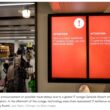Misconceptions about FirstNet could lead to some early disappointment, panelist says
LAS VEGAS—Initial state-consultation meetings have revealed a wide variety of perceptions at multiple levels about what FirstNet should be, so managing expectations promise to be a challenge during the early days of the much-anticipated public-safety broadband network, a panelist said yesterday at IWCE 2015.
These varied business and operational expectations inevitably mean that some people will be disappointed with FirstNet, even if the fledgling organization delivers a nationwide public-safety broadband network as mandated by Congress, according to Richard Mirgon, a consultant and former president of the Association of Public-Safety Communications Officials (APCO).
“Whether you’re a company trying to leverage it, because you’ve got a business model, or you’re a state trying to leverage it, because you think you’ve got an integrator, or just a cop on the street who has heard bits and pieces, there is going to be a percentage of people who are going to be dissatisfied with the offering, because their expectations are something different than what the intent was,” Mirgon said during a College of Technology session entitled ‘Developing Apps for the Enterprise and Critical Communications.”
Mirgon, who was a key player in lobbying for 2012 legislation that allocated 700 MHz D Block spectrum to public safety and created FirstNet, said “there are so many people with misconceptions of what we intended to do, or what they want to do or what they want it to be.” In one case, state officials expressed a desire to generate revenue from the deployment of FirstNet to help finance another communications initiative in their state, he said.
“There are people trying to figure out how to make money by reselling spectrum in their state to pay for debt that they’ve got on other parts of their microwave network,” Mirgon said. “It’s not allowable, and that was never the intent. So, when people get creative like that, there’s going to be some [disappointment]. I left a meeting where the report was that people were unhappy with what FirstNet had told them, because they had this other vision.”














